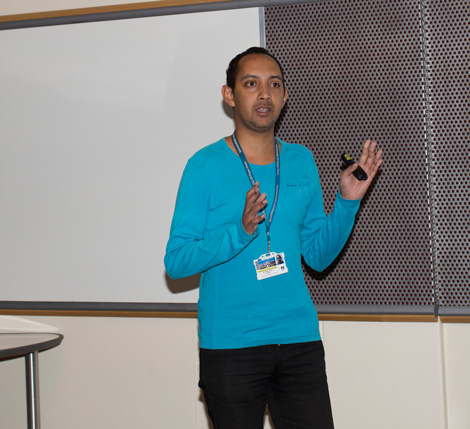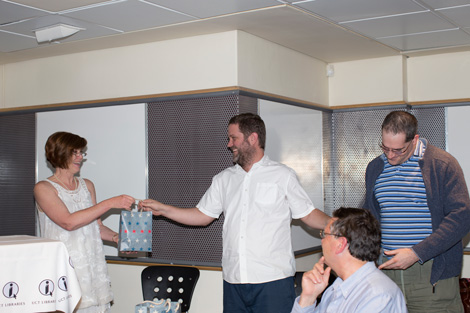GeoPortal at UCT Libraries

In January 2013, Linda Kelly (subject librarian: Archaeology, EGS, Oceanography) visited Massachusetts Institute of Technology (MIT) and learned that Tufts University along with Harvard and MIT had developed an open source geoportal platform for the managing and sharing of geospatial data. The platform was further developed as a federated web application and currently has more than 23 partner organisations.
UCT Libraries saw this as an opportunity for a ‘proof of concept’ to management research data and as a result the GeoSpatial Project was initiated in October/November 2013. The project team consisted of five working groups responsible for the advocacy, curation, metadata, development and interoperability of the portal.
The two core deliverables for this project were to produce a test case version just beyond the conceptual stage and to create an outline/checklist for individual researchers to submit a data management plan (DMP). The deliverable date was set to coincide with the worldwide celebration of Geographical Information Systems/Science (GIS) Day on the 19th of November 2014.

By 5 September 2014, the project team managed to ingest the first datasets, ‘sponsored’ by Dr Kevin Winter from the Department of Environmental and Geographical Studies (EGS). The project deliverables were met and on 14 November, the geoportal was migrated to the ICTS production environment. UCT Libraries has also decided to adopt the Digital Curation Centre’s DMP online tool, DMPonline. On 19th November, the Geoportal at UCT Libraries was introduced to the academic community.
The portal’s showcase was also attended by Wim Hugo from the South African Environmental Observation Network (SAEON). UCT Libraries and SAEON will look into the opportunity to integrate the Geoportal with the SAEON shared platform. UCT Libraries will link the portal to SAEON in the first half of the new year by exposing harvestable data and register as full member of the Open Geoportal Consortium in 2015.
We received the following feedback from the academic community who attended the showcase on the 19th of November:
“Academics using geospatial data are increasingly realizing the importance of validating spatial data sources because this is increasingly demanded by publications and perhaps in the not too distant future, by funders too. The Geoportal data management project at UCT is the first initiative, long overdue, to enable and require researchers to think carefully about the use of and reference to spatial data…The planned data management system, currently being trialed, puts these kinds of protocols in place and should help to develop interest in spatial data management at UCT” (Winter, 11 August 2014).
“Congratulations again to the UCT Library team who have taken an initial idea to the ‘proof of concept’ stage which was clearly presented today. I look forward to working with the Portal” (Winter, 19 November 2014).
Simon Hull, Geomatics Lecturer, invited the group to showcase at the quarterly meeting of the Western Cape Branch of the Geo-information Society of South Africa (GISSA):
“I think a presentation on the geoportal will be interesting and beneficial for the community as well as UCT Libraries” (Hull, 19 November 2014).
In addition, the Geospatial project team also presented at the eResearch Africa Conference on the 25th of November 2014 in the form of a workshop. The project was well received by the audience.

Through this initiative UCT Libraries have created the necessary infrastructure from which to build upon to archive, manage and disseminate institutional geospatial research data. In order to contribute meaningful research data to the Open Geoportal Consortium, as well as SAEON, the geoportal depends entirely on the university’s geospatial community to submit data to the portal.
Dianne Steele